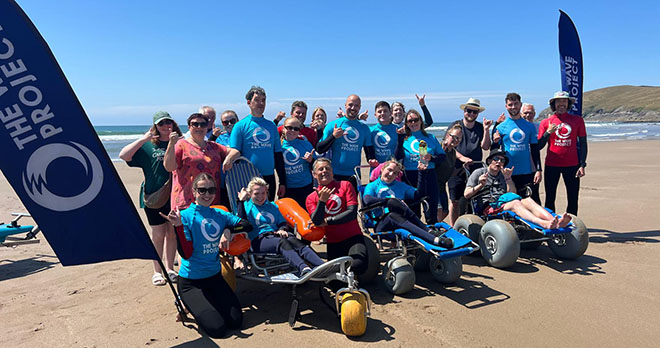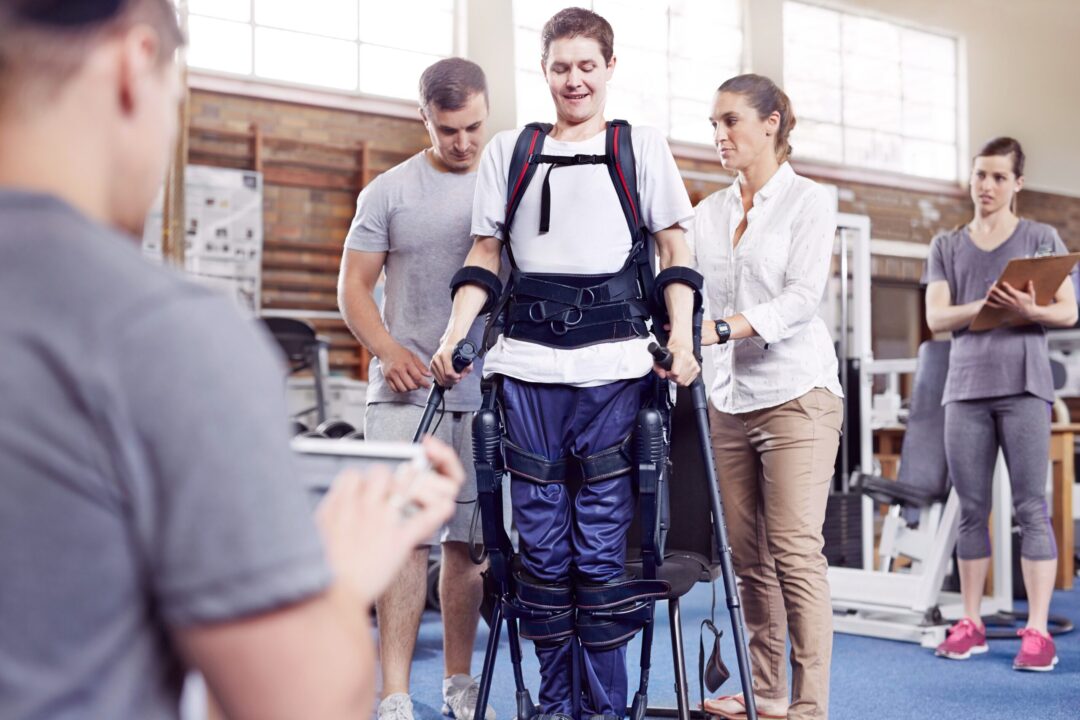Returning to work after a head injury

When to return to work after a head injury
After a head injury, it is important to ensure that you feel you are ready to return to work. The injuries you have suffered may have led to many complex issues, including memory loss and/or issues with fatigue, so undertaking a staged return to work is likely the best course of action.
If you are unsure whether you are ready to return to work, it is important to consult with a medical professional who may be able to help you understand the challenges full- or part-time work may bring in your particular case.
However, there are benefits to returning to work (other than the pay packet, of course). Primarily, as issues with mental health are common following brain injury, improving your self-esteem by getting back into the world of work can be invaluable. An Occupational Health Therapist experienced in brain injuries may be able to help you understand the best way to get the most out of work.
Why rest is so important for head and brain injuries
Work can be both mentally and physically tiring at the best of times, but when you have a brain injury your ability to cope with a full day of work may be hindered.
Fatigue is a common issue faced by those living with brain injury, and often certain situations which previously didn’t pose any problems can become difficult to be in – like a noisy factory or office – which can be particularly mentally and physically draining. Completing work-related tasks may be slower and more mentally taxing than before and interacting socially with other individuals in a work environment will only contribute further to this fatigue. Building time to rest and recuperate into a work week is therefore essential.
Find out more about how fatigue affects the brain here:
What to do when ready to return to work post-head injury
What does legislation say?
If you and the medical professionals overseeing your care agree that it is a good time to return to work, then as someone with a disability there are a range of protections that you will have under the Equality Act 2010.
There is a duty on employers to make ‘reasonable adjustments’ to facilitate a return to work and avoid any substantial disadvantages you may suffer at work. This goes beyond simply levelling the playing field for a disabled individual. Learn more about the Equality Act and reasonable adjustments.
When is a head injury considered a disability?
A head injury will be considered a disability (within the meaning of the Equality Act 2010) if it has resulted in an impairment (be it physical or mental) that has a substantial (more than trivial) and long-term effect on your ability to carry out normal day to day activities.
These may not just be physically ‘obvious’ issues, for example, the ability to walk or manipulate objects as you may have used to, but can include several hidden disabilities such as:
- Fatigue
- Personality issues, including an inability to control your emotions
- Issues with concentration
- Memory loss
Find out more about seven of the hidden symptoms of brain injury.
Am I entitled to any welfare benefits for a head injury?
A head injury resulting in brain injury may mean that someone is entitled to a range of welfare benefits.
These include:
- Attendance Allowance to help with care needs;
- Carer’s Allowance to help people caring for individuals with a brain injury;
- Employment and Support Allowance (ESA), which can help when someone is left unable to work as a result of a disability;
- Personal Independence Payment (PIP), which is a tax-free benefit to help with extra costs of living as a result of long-term disability (over 12 months);
- Statutory Sick Pay, which helps in the event that a brain injury leaves you unable to return to employment for more than three consecutive days;
- Universal Credit (UC), is a benefit for people of working age who are either on a low income or are left unable to work due to disability or long-term illness.
What accommodations at work do you need after a head injury?
The adjustments you require at work will depend entirely on your personal situation. However, there is a range of solutions available for employers to reasonably adjust their workplace (see below) to your needs.
Changes to the office to aid with physical limitations
People with a brain injury may be physically disabled, and as such require the use of mobility aids.
To help people with these physical challenges, employers can:
- Install ramps to main entrances and where stair access is required
- Install doors that can be used one-handed or by those with limited dexterity
- Provide dedicated disabled parking spaces
- Ensure the workplace has space for a wheelchair and is free of obstructions or hazards that may present difficulties for people using a walking stick etc.
Changes and/or aids for visual issues
Sometimes people living with a brain injury can experience weakened vision or sensitivity to bright lights.
In order to help people with weakened vision, employers could:
- Provide written information in larger text
- Increase natural lighting
- Reduce glare on monitors using special screens
- Employ special consultants
- Provide adaptive technology
For those with increased sensitivity to bright light, increasing natural light can also help, but also updating any bright fluorescent lights might help.
Accommodations to help with concentration
Concentration can be a real issue for people living with brain injury as they return to work, and it can be challenging for employers to manage. However, accommodations can be made, such as:
- Providing a quiet workspace, that is private to the employee
- Reducing distractions and clutter
- Giving the employee more time for their work
- Breaking down larger jobs into more manageable tasks
- Encouraging focus on one task at a time
Adjustments to help with managing fatigue
A common effect of brain injury, chronic fatigue (being more than just tiredness) may result in an employee struggling to work even during normal hours. Employers may therefore consider adjustments such as:
- Flexible working arrangements to adjust an employee’s schedule based on their level of fatigue, or allowing part-time work
- Allowing longer and more frequent breaks
- Providing cover for any breaks that may be needed
- Looking at job-sharing opportunities within the business
Assistance for employees experiencing memory loss
Memory loss is also a common issue when it comes to brain injury, which can be especially challenging in the fast-paced world of work. However, there are ways in which an employer can accommodate an employee struggling with their memory, including:
- Allowing the employee to tape-record meetings
- Providing methods of retrieval such as notebooks, calendars, and post-its
- Ensuring any instructions are given in writing as well as verbally
- Limiting verbal instructions
- Providing checklists
- Providing written instructions nearby to commonly used equipment
Adjustments to policies/practices
Your Employer may also have to adjust its policies and practices, including:
- Adjusting standard working hours
- Allowing working from home
- Adjusting any sickness absence policy to exclude disability-related absences (such as time off for medical appointments)
- Adjusting any performance management policy and any KPIs/duties
These are some of the main issues brain injury can raise that may require adjustments in the workplace, but employers may also need to be able to address issues with attendance, stress and emotions, and more. Headway has some fantastic and comprehensive advice on the various issues employers may experience.
What if my employer can’t accommodate my needs?
Your employer should do everything reasonably possible to accommodate your needs if you have a disability as a result of a head injury.
If you don’t feel that your needs are being met, make it clear to your employer the challenges you face as a result of your disability coupled with their policies and/or employment practices. They may not understand the effect whatever they are not changing is having on you.
Should the employer still refuse to make reasonable adjustments as a result of your disability, you may have a disability discrimination claim. You can find out more about this and your legal options in our article on disability rights in the workplace.
Practical tips for returning to work after a head or brain injury
Seek support from those around you
Re-entering the world of work can be a daunting prospect after a head or brain injury, so it is important to find support where you can. Whether it is a health professional, your friends, family, or even a colleague, accepting you need help from someone is half the battle.
Part of this is also communicating with your employer any challenges you might be facing. You do not have a duty to disclose a health issue to your employer unless it puts others at risk, but keeping an open dialogue can ensure that any issues you face on your return to work are dealt with effectively.
Make sure you’re ready
As mentioned at the start of this article, it is essential that you know when you’re ready to return to work. Many brain injury survivors find themselves returning too soon because they underestimate the impact their symptoms have on their ability to work, which can be damaging to their confidence.
To try and ensure you’re prepared you can put in practice at home though, for example by training yourself to take notes on the phone, keeping appointments, or keeping to a schedule.
Accept that you might not work in the same way as you once did
Whilst you should try and be positive about your return to work, it is also important to be realistic; a brain injury often leads to subtle but significant changes to the way people work.
You may not be able to deal with high-stress situations as you once did, and you might not be able to work as long hours – whatever it might be, you must be willing to accept things may be different.
Use strategies to cope with changes to the way you work
As mentioned above, there are a range of accommodations that employers can provide in the workplace. These can help you to manage any issues that may affect you on a day-to-day basis including fatigue, concentration, and memory loss, among others.
With these coping strategies in place, it is also important that you arrange for any managers you have to monitor your work and to feedback where improvements can be made. This way you can ask for further assistance or adaptations should any particular challenges be affecting the way you work.
What if I can’t return to work?
If you feel unable to return to work, you should seek advice before making any decision. This includes checking whether you are eligible for ill-health retirement or Permanent Health Insurance (PHI). You can find more information about how we can help with PHI.
Need additional support? We’re in your corner
The workplace can be an empowering but also daunting place to be for someone who has experienced a head injury, but fortunately there is also a range of support available for people to get the best out of their employment.
At RWK Goodman we aim to be a lifelong legal partner for people who have suffered life-changing brain injuries, including assistance with employment issues, to ensure our clients can live as full and active a life as possible.
If you or someone close to you has suffered a brain injury as a result of someone else’s negligence, and you would like to find out about making a claim for compensation, contact our legal specialists today.
Call now











